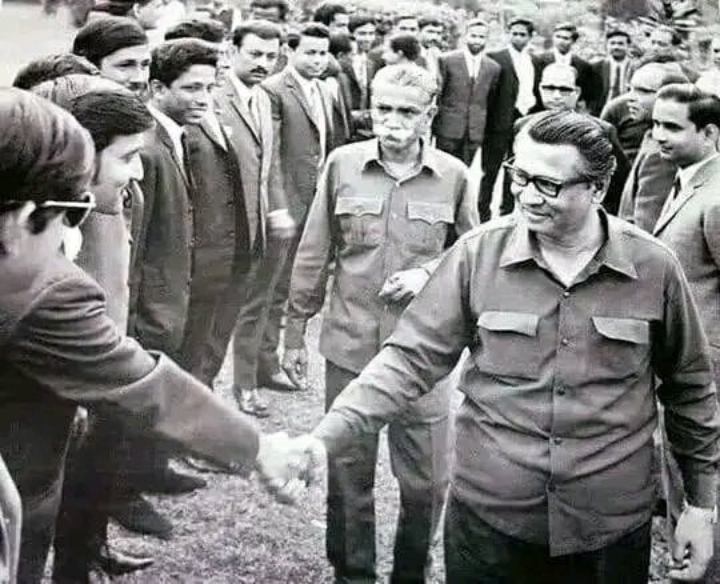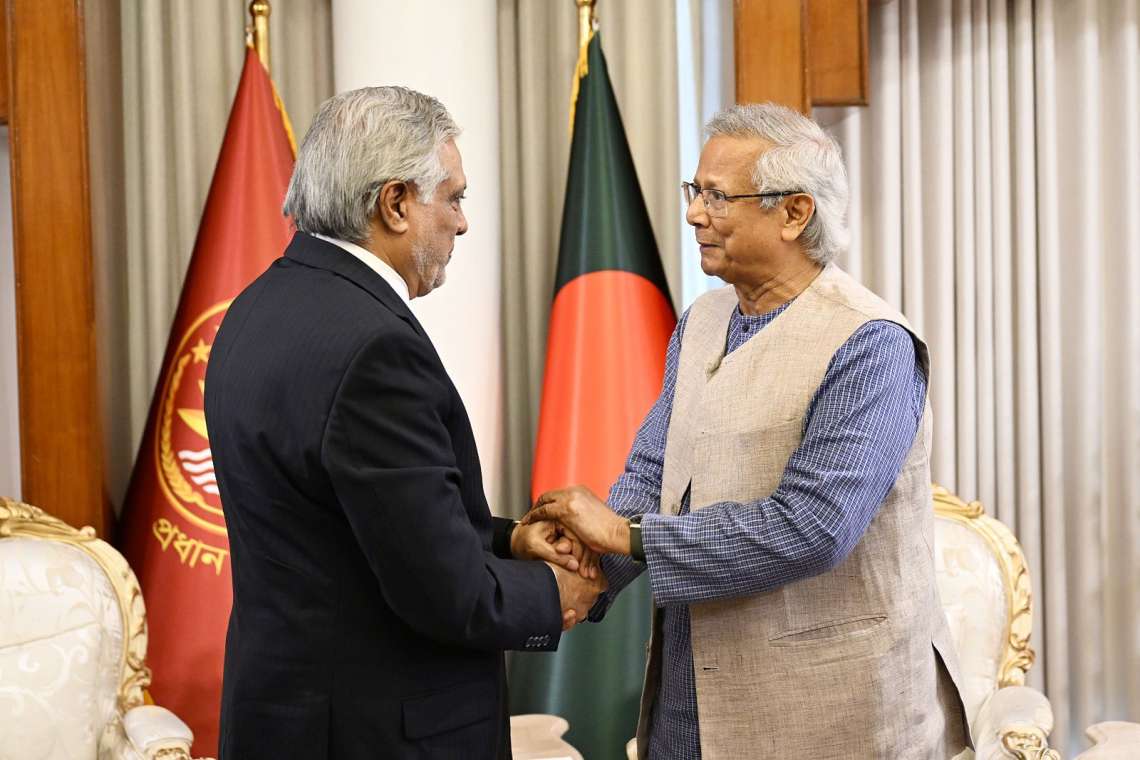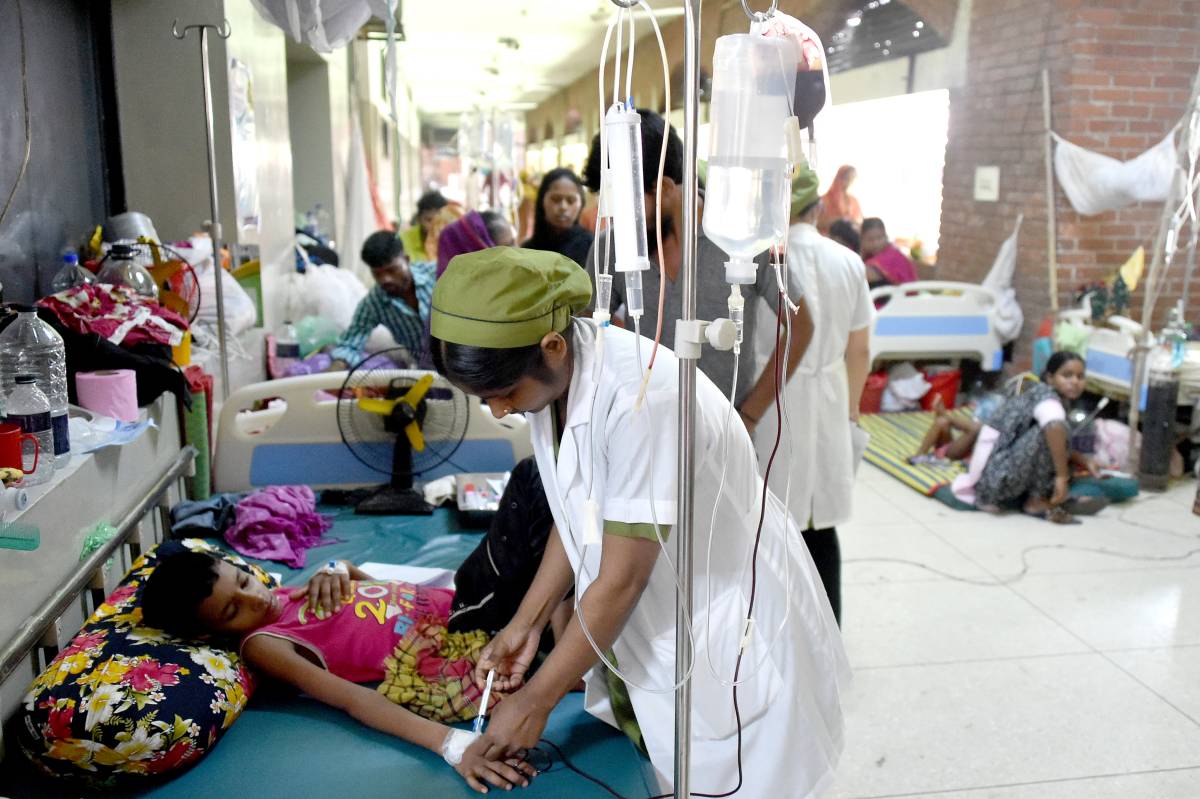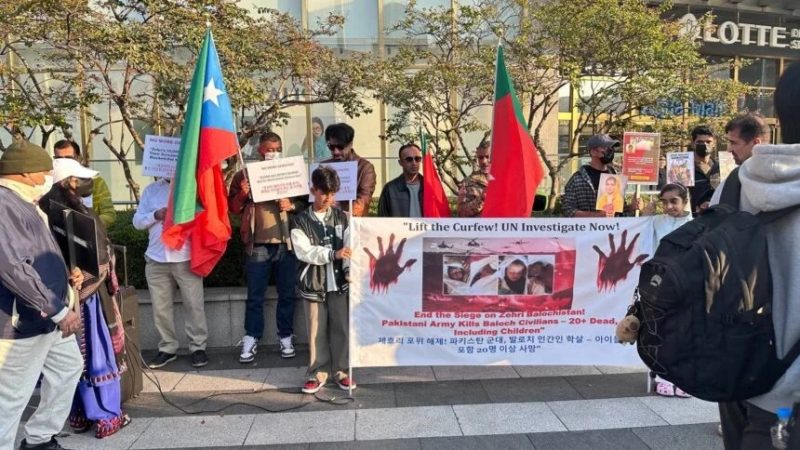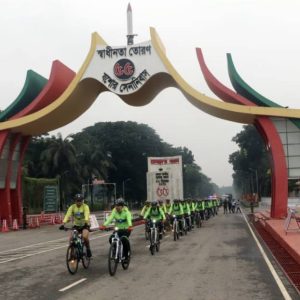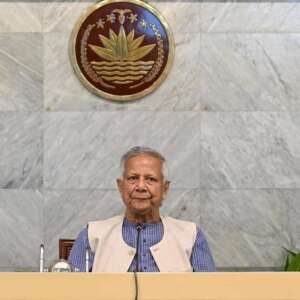For Tajuddin Ahmad, it was politics which was the first and only priority….writes Syed Badrul Ahsan
Had he lived long Tajuddin Ahmad would have turned ninety-eight on Sunday.
Bangladesh’s first Prime Minister, its wartime leader, was possessed of a personality that was self-effacing. Had he not been in politics, it is reasonable to suppose, he would be a writer or a political theorist. There could also have been the chance of his teaching the young in classrooms on the nature and substance of Marxism, indeed on the many ways in which politics changed people’s lives for the better.
For Tajuddin Ahmad, it was politics which was the first and only priority. His belief in politics being an engine of change, in the power of political leaders to make life better for people never wavered. Politics, he convinced himself and persuaded others into agreeing with him, was an idea the efficacy of which could be demonstrated through personal example. And many were the examples he set throughout the fifty years given to him of life.
In his youth, it was politics which drew him to thoughts of public welfare. His diaries remain proof of his growing commitment to political goals. A brilliant student all his academic life, he bicycled all over town – listening to speeches, meeting men he admired, interacting with simple folks from his village and elsewhere – to understand the condition of Man a little better. In later years, having steered the engine of liberation to its destination, the spoke of the sacrifices that would be needed to lift Bangladesh out of its difficulties. But while the struggle went on, the people – his fellow Bengalis – would share their poverty.
Tajuddin’s life was a long, ceaseless commitment to principles. Many were the chances, and the offers, he could have taken advantage of in post-1971 Bangladesh to offer alternative leadership to the country. The idea was anathema to him, for principle rather personal grudges were what he worked on. Bangabandhu asked him to leave the cabinet, a directive he complied with without complaint. And yet he remained steadfast in his loyalty to the Father of the Nation. Even after they parted company, Tajuddin and Bangabandhu remained in touch, remained aware of how the other was faring. Bangabandhu informed Kamal Hossain in July 1975 that Tajuddin was coming back to government. Tragedy, for both men, came in the way.
Probity underpinned the Tajuddin character. During the War of Liberation, he prioritised his struggle, asking his wife to identify herself and their children with the seventy-five million other Bengalis waging war to free themselves of the yoke of foreign subjugation. He loved his family, but in that year of death and destruction, he loved his country more. Not until Liberation did, he go back home, to his wife, to his children.
Tajuddin did not let his family come in the way of governance. Informed that the probable promotion of a certain government official to a higher position needed to be reviewed considering the dangers into which this individual had exposed Tajuddin’s wife and children by refusing to give them or take them to shelter in the terror of 26 March 1971, Tajuddin knew what he ought to do. He thought over the issue deeply and then told the startled bureaucrats in his office that the official’s prospects of promotion should be determined by his abilities rather than by his insensitivity to his, Tajuddin’s, family during the war. It takes a brave man to look beyond family, to pardon one who has caused hurt. Tajuddin, by that measure, was a brave man.
The bravery was on display when a team of government officials, having travelled abroad on a delegation, came back home with items on which customs duties needed to be paid at the airport. It was their belief that they could wriggle out of the situation through appealing to the highest authority in the land, in this instance Bangabandhu himself. Tajuddin wrote to Bangabandhu, explaining why the officials could not be permitted to go free. They would have to clear the customs duties at the airport before taking possession of their goods. Bangabandhu agreed with the finance minister. The duties were paid. The goods were cleared. Tajuddin Ahmad had made his point.
Quiet men, it is said, are incredibly courageous men. Tajuddin’s courage was not merely at work in the early, dark hours of the genocide launched by Pakistan on 25 March 1971. It was there when he beat back the challenge to his leadership by his detractors in Mujibnagar. And then he took the bold decision to stop Khondokar Moshtaque from travelling to New York in September and repudiating the Bangladesh cause at the United Nations. It was the same Moshtaque whom he talked out of a demand for insurance money, in all the firmness he could muster, dating back to the Pakistan era. It would not look good for a minister to be carping about money he could do without. Moshtaque had no response.
Tajuddin did not let go of his principles even before supposedly powerful men. He would not meet Robert McNamara in 1972. But 1974 was a different proposition altogether. Even so, when the two men met in Washington, Tajuddin had two suggestions to offer in response to McNamara’s query about Bangladesh’s needs from the World Bank. Bangladesh, he told a stunned McNamara with a straight face, needed just bullocks to till the land – since much livestock had been commandeered by the occupation army or had run off in the heat of conflict in 1971- and ropes to tie them to the plough.
Tajuddin Ahmad knew, as the soldiers took him away from his family in August 1975, that he would not return. On the night the killer squad came for him and his colleagues in Dhaka central jail, he was calm. He was the last one of the four Mujibnagar leaders to die that night. There was yet life in him after the bullets had riddled him, which prompted the killers to return and push the bayonet into him.
The last of Bangladesh’s bravehearts, the leadership which had led the Bengali nation to freedom, was gone.
(Syed Badrul Ahsan is a journalist, author and commentator on South Asian and American politics based in Dhaka and London. Views expressed are personal and exclusive to India Narrative)
(The content is being carried under an arrangement with indianarrative.com)


